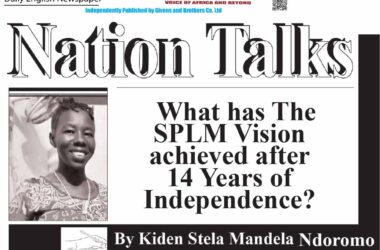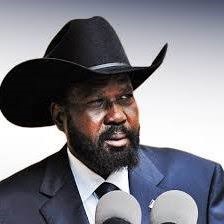By Yiep Joseph
Resumption of South Sudan’s crude oil production following a temporary halt due to security challenges in Sudan has sparked renewed calls for transparency and accountability in the management of the country’s oil proceeds.
Last week, the Presidential Advisor on National Security, Tut Gatluak, led a high-profile delegation to Port Sudan and confirmed the resumption of crude oil flow.
With the reopening of oil flow, opposition politicians and activists are now urging the government to put in place measures to address corruption and ensure proper use of revenues generated from the oil sale.
In an interview, Ghai Chol, the Chairperson of the Coalition of Opposition Parties (COOP), which is an umbrella group of various parties urged the government to dissolve the crude oil sale committee and establish a new one to ensure transparency.
“To further enhance transparency, I recommend the dissolution of the current crude oil sale committee and the formation of a new committee,” Ghai said
“This new committee should be composed of individuals known for their high integrity and commitment to ethical practices,” he added.
Ghai stated that if the current management approach persists, there will be no significant change.
He suggested that the solution will only come when transparency and accountability are prioritized and strictly observed, adding that transfer of oil funds should strictly be made by the government in line with the law.
“It is crucial that the money generated from oil sales is deposited directly into the Bank of South Sudan rather than being channeled through individual accounts,” he added.
In the past, there have been allegations of corruption and mismanagement of oil revenues, which economic experts claimed might have contributed to the country’s economic challenges.
In his Part, Ter Manyang, the Executive Director of the Center for Peace and Advocacy (CPA) also echoed the call for transparency in the management of oil revenues.
“This is wonderful news for our country; however, the government of South Sudan should demonstrate high accountability and transparency for the oil money to finance the activities of pending issues for the R-ARCSS,” he said.
Ter appealed to the government to clear all the arrears of the civil servants and the organized forces.
“Center for Peace and Advocacy (CPA) calls upon the Government of South Sudan to pay civil servants and organized forces who have gone months without testing their own labor,” he said.
Edmund Yakani, Executive Director of the Community Empowerment for Progress Organization (CEPO), further renewed the call for stringent regulations governing the utilization of oil revenues.
He stressed that careful deployment of the funds could significantly enhance service delivery and facilitate peacebuilding efforts within the country.
Yakani urged the government to ensure that oil-producing communities receive their rightful share of oil revenues, as stipulated by law.
With the resumption of oil production, he implored both the government and oil companies to prioritize environmental protection and minimize pollution.
The main pipeline carrying oil from South Sudan through Sudan for export was halted in February because of damage stemming from a war between Sudan’s army and the Rapid Support Forces.
Analysts say the damage is leading to serious environmental contamination and that the stoppage has contributed to higher food prices in Sudan, where millions face extreme hunger.
South Sudan’s economy has been under pressure in recent years amid communal violence, with crude oil export revenue having dwindled since a 2013-2018 civil war and more recently export disruptions due to war in neighbouring Sudan.
The country had been sending about 150,000 barrels per day of crude through Sudan for export, under a formula established when South Sudan gained independence from Khartoum in 2011.
However, it only earns income from 45,000 barrels, after the share owed to international companies and fees paid to Sudan.




